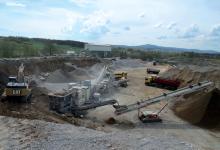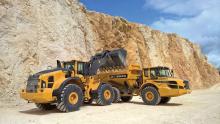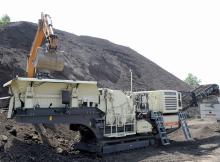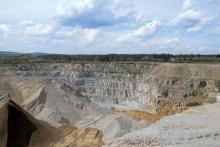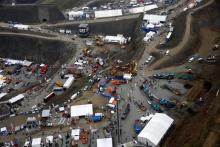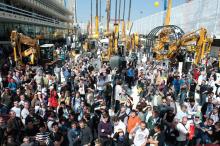
As I write this comment piece, the preparations for bauma 2016 are nearing completion and all minds are on the new products for the quarrying and construction industries that we’ll be seeing in Munich during the 11-17 April event.
You’ll find some of the likely highlights of the show featured in this issue of Aggregates Business Europe, including much to excite on the vital crushing and screening side of the quarrying business.
Given that it’s a
Building material suppliers will have taken heart from the latest
Furthermore, Off Highway Research (OHR), the management consultancy specialising in the research and analysis of international construction, sees the European market showing a slight improvement in the period 2015-19 – achieving annual average sales of 130,695, compared to 116,407 in the years 2010-14. OHR is forecasting no change in the three biggest sellers in terms of construction equipment models and their percentage of overall model category sales in the period 2015-19 compared to 2010-14 – with mini excavators at 36%, and crawler excavators and telescopic handlers both at 18%.
Meanwhile, the UK and Germany are forecasted by OHR to see their percentage of overall European construction equipment sales fall from 26% UK and Germany 25% in 2014 to UK 22% and Germany 22% in 2019. French sales will remain the same (19% of overall total) in 2019, compared to their level in 2014. Italy will, says OHR, see its proportion of overall European construction equipment sales rise from 6% in 2014 to 11% in 2019, supporting more recent promising sales figures reported by national sector associations such as Unacea.
In this issue of ABE you’ll find our latest Agg-intel branded feature on key topics within the contemporary aggregates industry. AR5 consultancy co-founder Xavier Therin, a former senior minerals industry company executive with over 25 years’ experience in the metals and minerals sector, examines the shift in aggregate processing to greater use of mobile equipment.
Being able to rely on a productive and efficient screening fleet is a must for any ambitious new building materials supplier. And a recently established concrete and asphalt production plant belonging to the Romania-based Florea Grup is said to be benefiting greatly from a high- quality screening solution provided by one leading European OEM. Our Quarry Profile in this issue looks at how the screens play a key role in the company’s evolving success story.
Being our bauma 2016 Munich issue, our Market Report sees ABE Executive Editor Patrick Smith look at current and likely future aggregate demand in Germany. The greater optimism within the European construction equipment market emphasised by the likes of CECE seems to be shared by the German aggregates sector, with the Mining Association, affiliated to the VDMA (German Engineering Federation), and MIRO (The Federal Association of Mineral Resources), in upbeat mood about current and future demand levels.
Given that Germany has 1,600 companies, with approximately 3,200 plants and 27,000 employees, working to supply an estimated 500 million tonnes/year demand of gravel, sand, silica sand and natural stone products for building and other industries, a stable and potentially slightly increased demand in Europe’s largest single nation aggregates market is also very welcome news for the continent’s overall market health.


